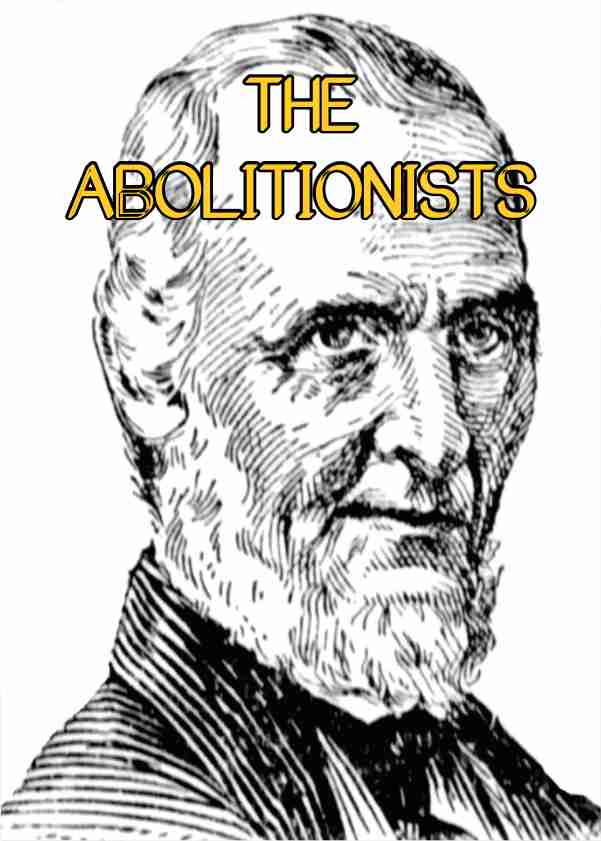THE ABOLITIONISTS
THE ABOLITIONISTS


[144] Another long word, children; but as very likely your own grandfather was an abolitionist himself in those days, you will want to know what the word means.
We are now close upon the terrible war which was brought about by this disagreement between the North and the South, The Abolitionists—that is, the people who believed in doing away with slavery—had come to be quite large in number. The North had all these years believed that slavery was not right; and while they had done away with it in their own States, they had not pushed very hard in the matter against the South. But now the Abolitionists had come. They not only believed that slavery was wrong, but they were determined it should be abolished.
The Southerners hated and feared these Abolitionists. "What if they should come here among our slaves and teach them about liberty and freedom!" said they.
The first Abolitionist of the times was Benjamin Lunday, one of the good old Pennsylvania Quakers. He began talking up this matter with everybody he met, till at last his name and his sayings began to be talked about in the newspapers; other newspapers took it up, and others, and others,—some praising the good Quaker, others condemning him. But whether they praised or condemned, they set people all over the country to thinking, and many [145] a one who had never given it a thought before, began now to wonder in their own minds if the Quaker wasn't right, after all.
Benjamin Lunday came to Boston at length; and there he found William Lloyd Garrison, who was as full of the desire to see the slaves free as he was himself.
And such talk and such excitement as these two men did stir up in good old Boston! There had been nothing like it since the old Revolutionary times. Garrison went to work and published a newspaper called the "Liberator," in which he set forth freely his opinions on the slavery question. The whole country was set boiling by this paper. His very life was in danger. In one State, five thousand dollars were offered for his head.
The people of Boston itself threatened to tar and feather him if he did not hold his peace. "I am right, and I will speak!" was his answer. At last he was seized by a mob, and dragged about the streets by a rope. I don't know what would have become of him had not the mayor of the city come to his rescue. He was put in jail that he might be safe from the mob.
Out in Illinois, another newspaper editor was doing the same sort of work. He, too, was mobbed, his presses destroyed, and he himself killed in the fray.
All this time the little party of men and women who called themselves Abolitionists were growing stronger and [146] stronger. And now when the news of this murder reached the ears of the Boston Abolitionists, a meeting was called in the old "Cradle of Liberty."
And it was at this meeting that Wendell Phillips, the silver-tongued orator, first came into notice. He was young, and rich, and educated, belonging to the very best families in Massachusetts, having everything in his favor whereby to make for himself a high place in the world. But all this he threw aside, and came and joined the little band of despised Abolitionists, joining with William Lloyd Garrison as a leader in the cause of freedom for the negroes.
At the same time, our dear old Quaker poet, as he is called now, joined the ranks. He was young then, and was just beginning to come into notice among the people of the land, He, too, had a life of ease and glory before him if only he had not taken up the slavery question; but when he began to plead for the poor negro of the South through his beautiful verses, just as Wendell Phillips was pleading for them from the platform, then the people turned against him as they had turned against Wendell Phillips; and for thirty years this poet whom now we all love so much, and regard with such tender reverence, was looked upon with contempt, and was insulted and scoffed at by the people. Dear, tender-hearted Whittier! Are not you glad, children, that he has lived to see the day when his countrymen do love him as he deserved? What do you [148] suppose the people in those Abolition days would have said if some one had told them that in less than thirty years John G. Whittier's verses would be in all our books, and better still, in all our hearts; and that the children all over the country would be celebrating this self-same Whittier's birthdays in their school-rooms, reading and speaking and singing of the "gentle Quaker poet?"





























































